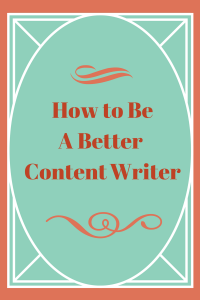Every time you log into LinkedIn, you face bad news. Another marketer in your network got laid off. Those lucky enough to survive layoffs are facing budget cuts and struggling to do more with less. It’s rough out there.
But the businesses cutting back still want to see results. Marketing departments are still tasked with creating useful content that keeps you competitive. You’re just stuck trying to do it all with fewer people and less money.
When you have too much work and can’t afford to hire new employees, working with freelancers is a potential solution. But skilled, experienced freelance writers—people that will consistently turn in content that matches your instructions, is genuinely valuable to your audience, and requires minimal edits—charge top rates.
6 Strategies to Hire Great Freelancers More Affordably
Freelance writer rates can vary a lot, but hiring someone with an established reputation and proven record doesn’t come cheap. With the right approach, you may be able to access the talent and work ethic of well-renowned freelance writers at a more budget-friendly price.
1. Offer a retainer.
For freelancers, finding new clients and projects to take on is a big job. But that’s work that doesn’t pay—at least not directly. Clients that send steady, consistent work are therefore more valuable to a freelance business than those that hire now and then for one-off projects.
As a result, many freelancers are open to considering a discounted rate in exchange for that steady commitment. “If [a client] signs for a 3-month retainer, I give a discount off my hourly rate,” Content Marketing Consultant Erika Heald told me. “Every 3-month or longer retainer I sign is one less new client pitch I need to land,” she explained.
In case you’re not familiar with the term, under a retainer model, you pay the freelancer a set amount each month to devote a certain portion of their calendar to your business needs. It’s beneficial for both parties: the freelancer can count on consistent payment, and you know they’ll be available for projects you need their help with.
2. Handle editing in house.
Most freelance writers include a round or two of revisions in their standard rates, and some even pay a professional editor to review their pieces before passing them on to clients. While we want to make sure clients get a deliverable they’re happy with, we also have to limit how much time we spend on each piece to protect our own business interests.
Extensive edits cut into the time we spend on work for other clients or our own business. One potential way to save money is to handle more of the editing process internally. This is one of the scenarios where Freelance Writer Ashley Cummings says she’d considered negotiating her price. “If they have an excellent editor on hand, I don’t have to pay my editor to do the work twice,” she points out.
3. Handle more of the legwork.
A huge part of writing well is doing good research. If you can reduce the amount of work the writer must do in the research stage, that saves us time and effort and can reduce your overall costs. “I do charge more if they have me find sources or do research,” says Writer and Consultant Michelle Garrett, “so if they provided everything and I didn’t need to provide that, I’d charge less.”
One option to potentially gain savings when working with top freelancers is to promise strong, detailed writing briefs. A solid writing brief provides us clarity on what clients want to see in the finished product, which reduces the amount of work required in the editing process. Plus, it can give us a head start on the research process. A brief that provides suggested resources to read on the topic, recommended subject matter experts to reach out to, or main points you want the piece to cover helps writers get to the writing part of the process faster.
4. Use the writer’s byline.
In my 12 years of freelance writing, I’d estimate that fewer than 50% of the pieces I’ve written were published with my name on them. Performing work that goes up under someone else’s name (or that simply has the brand’s name on it) is a normal part of freelance writing, but it does make building a strong portfolio to share with prospects harder.
Publishing a freelance writer’s work under their own name and byline can be beneficial for their business. As such, some writers charge less for bylined pieces, and more for ghostwritten pieces that they can’t share as freely with prospects.
This will apply more in some scenarios than others—for example, if the topic is relevant to the writer’s brand. Erika offers a lower bylined rate when writing about marketing topics for clients. “[That] comes with getting in front of a new audience that overlaps with mine (which is great!)” she explains. And Michelle told me she’s more likely to reduce her rate if it’s for a publication that has a high profile. That helps her both build more authority and reach a bigger audience.
5. Be easy to work with.
Clients that are good at communicating what they want, pay on time, and are generally pleasant to interact with may be able to earn special rates from freelancers. “I think the value of working with someone you enjoy working with (who’s easy to work with) can be a reason to take less money,” says Michelle.
This is the kind of strategy that really only works with time though. You can assure freelancers upfront you’ll be a joy to work with, but clients sometimes make promises they don’t keep (as many of us learn the hard way).
But if you treat this as a long-term strategy, it can absolutely pay off. Personally, I’m much slower to raise rates on clients that are easy to work with, meaning that some of my long-term clients pay considerably less than what I charge new clients. I think of this as my “legacy rate.”
As a bonus, this strategy can keep paying off as you move into new roles over time. Once you have a relationship with a freelancer, they’ll factor that into their rates when working with you at different companies as well. “If [a content manager] is someone I really enjoyed working with previously, then I’m more open to collaborating on finding a number that works for both of us,” says Freelance Writer Kat Boogaard. “We’ve already built up some trust, familiarity, and comfort—and sometimes those things are worth compromising my rates for,” she adds.
6. Do meaningful work (or let them do work that’s meaningful to them).
This tip’s a bit harder to work into your strategy, but still bears mentioning. If you’re providing writers with an opportunity to cover topics they care about, they may be willing to work for less (but still don’t ask them to work for free—work is still work).
Carmen Hill, the Principal Content Strategist and Writer at Chill Content told me “My rates might be negotiable for regular/retainer work or other considerations, but the main criteria = cool work with cool people.” Erika reiterated that idea: “When I have the opportunity to write about gluten-free life or SPCA volunteer work, getting to give visibility to something I love is worth the discounted rate for me,” she told me.
How to Approach Asking a Freelance Writer for a “Deal”
If you’d like a freelancer to consider giving you a lower rate, how you ask matters. Asking the right way doesn’t just impact how likely you are to get a “yes,” but also whether you burn a bridge. And insulting one freelance writer could earn you a bad reputation with their peers. Our work may be solitary, but freelance writers do talk to each other.
Before you ask a freelancer for a deal, consider first: do you have to? If you can afford their stated rate, keep in mind that money typically means more to an individual working for themselves than it does to a big company.
But if your budget is truly so limited that you need that discount to move forward, here are a few ways to ask for a deal without making a professional enemy in the process.
1. Consider your framing.
Experienced freelancers know that any client that assumes our job is easy and doesn’t require much skill will be a pain to work with. If the way you ask for a discount implies you think the freelancer’s work isn’t worth much, that will come off as a clear red flag.
“I always caution companies to frame the conversation as ‘we can’t afford you’ rather than ‘you’re too expensive.’” suggests Kat. “There’s a big difference between the two.” Telling a freelancer they’re not worth their rate is an insult to their skills and ability (plus, they probably have other clients happily paying that rate already).
“I think the best way to approach the conversation is to simply *ask* the freelancer if they have any wiggle room on their prices, rather than jumping right in with negotiation tactics,” she adds. That shows you respect their agency and won’t try to pressure them into a rate they’re not comfortable with.
2. Think about what’s in it for them.
The best way to ask for a reduced rate is to think about how to make the lower pay worth their while. What can you offer that saves them time, reduces their workload, or provides value to their business?
“Let us know what you can offer in exchange,” says Erika, “such as increased social sharing, one-time use rights being purchased only, or something else that makes it a win for both of us.” Make it clear that you’re not just trying to get more for less. If your framing demonstrates that you’re aiming for a mutually beneficial partnership, it signals to the freelancer that you respect them.
3. Reduce your ask.
The most straightforward way to work with a freelancer whose rate is higher than you’d hoped is to ask for less work. Reducing the scope of work makes it easy for them to say yes to a lower price. That could mean hiring them for fewer pieces that are each at a higher price, reducing the assigned word count per piece, or offering to perform subject-matter expert interviews yourself and provide a transcript to work from.
If your project takes up less space in their calendar, agreeing to a lower rate won’t translate to working at a loss.
4. Don’t be a jerk.
This one should go without saying. And yet, any freelancer that’s been at it for a while has encountered someone who was a jerk about our pricing.
“Don’t neg the freelancer,” says Erika (a quote that could go on a t-shirt).
If you’re patronizing or insulting, you definitely won’t get to work with that freelance writer. And—as previously mentioned—other top freelancers may well hear about it. You could be ruining your chances to work with any of the best freelancers in your field.
5. Ask for referrals.
If you don’t know many freelancers, this may be news to you, but most of us love helping each other out when the opportunity arises. I don’t see other freelance writers as competition, I see them as an indispensable resource for my business. And I’m not alone in thinking that way.
“Sometimes I have opportunities for work that I could do and do very well—but there are also people who could do that work well for less,” says Carmen. When she knows a project is a good fit for another freelancer—potentially someone earlier in their career, who’s happier at a lower price—she’s happy to send a referral their way.
If the first freelance writer you contact is outside of your price range, ask them if they can recommend someone else for the project. As long as your rate is reasonable and you’ve been respectable in your dealings with them, most freelancers will be happy to provide any relevant referrals they know.
Getting a Deal from Top Freelancers is (Sometimes) Possible
Every writer I heard from for this piece was able to name a scenario where they’d consider lowering their rate. While the answers they gave included some overlap, they weren’t the same across the board. Which reveals an important fact about working with freelancers: we’re all different.
Working for myself means figuring out the ways of working that make the most sense for me and my business. If you use a tip from this post and a freelance writer turns you down, that doesn’t mean they’re difficult. A tradeoff that’s worth a lower rate to one freelancer won’t be attractive to another. And a deal that makes sense for a freelancer today may not in six months. A lot of complicated factors go into determining the right pricing for different types of work.
The takeaway from this post should not be that you can definitely get a freelancer to agree to a lower rate and should always try. Instead, my most important recommendation is to consider how to approach discussing payment in a way that shows the freelancer you see them as a valuable resource and want the relationship to work well for both of you. Do that, and you might still get a “no,” but you’ll keep the relationship and leave the door open for a potential “yes” down the line.






